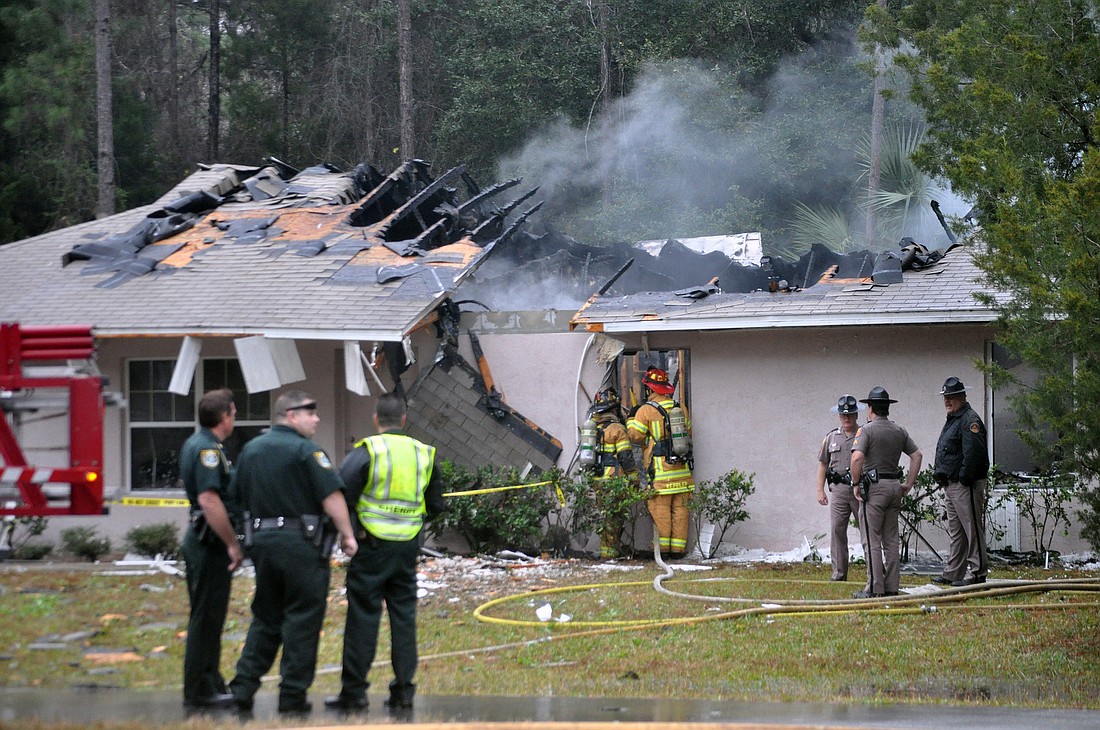- May 8, 2024
-
-
Loading

Loading

Ever since a four-seat Beechcraft airplane crashed into her house Jan. 4, 2013, killing everyone aboard and missing her by a matter of feet, Palm Coast resident Susan Crockett has been dealing with the aftermath: the injuries to her shoulder, which she hurt climbing through a window to escape the burning wreckage, and the less visible but not less harmful psychological aftermath of the trauma.
The handling of all of that, attorney Marc Dwyer said, could have been much easier — if the plane’s owner and pilot, Michael Anders, had had insurance.
He didn’t. Neither federal nor Florida law requires insurance for small private planes.
As a result, Crockett, whose home was declared uninhabitable and was razed after the crash, has had to pay for medical treatment herself.
Now the two are taking action.
“It seems like this is what I have to do to get someone to listen: bring a lawsuit,” Crockett said in a statement. “No one should have to go through what I went through — to have your life destroyed and no one is accountable for that.”
Crockett, Dwyer said, “had to have surgery on a shoulder that she injured climbing out of the window. For a long time, any loud noise would make her jump. She’s been dispossessed and misplaced out of her home. She has had to bear the brunt of all of these things through no fault of her own.” And it could have been worse. “Mrs. Crockett has been very blessed and is very fortunate that she is alive to tell this tale,” he said. “If she’d been 10 feet down her hallway, she wouldn’t be here.”
Dwyer filed a complaint against the Federal Aviation Administration Jan. 2, not long after the publication of a report by the National Transportation Safety Board that listed both Anders and air traffic controllers as partly responsible for the crash.
“We had to take the next step,” Dwyer said. “We were kind of forced by the timing of the statute of limitations to do something, to have an avenue to press the federal government for some change.”
That action, Dwyer said, leaves the government six months to analyze the claim and determine how to proceed before the case moves to court, where Crockett could seek monetary damages from the government.
If that happened, he said, the case would be heard in a federal court, most likely in either Orlando or Jacksonville.
“If it becomes a court case … either a judge or jury will decide what percentage of the blame air traffic control is assigned, and they would be responsible for that share,” he said.
But with the court case, Dwyer said, he’s looking to shine a light on the consequences of the absence of a regulation requiring planes to be insured. He’s contacted U.S. Rep. Ron DeSantis and Sen. Bill Nelson about changing the law, he said, and “they offered to do what they could to assist in the effort.”
“You can’t get in a car without insurance, but you can fly over homes and schools without insurance? That’s incredible to me,” he said, later adding: “There is no real mechanism by which I can force the government to pay attention; the only way I can force the government at this point is to bring suit against them. We want to see some change. I think it’s clearly obvious that the pilot played a major role in it, and he will pay no role in covering Mrs. Crockett’s damages.”
Fixing the problem, he said, wouldn’t be terribly complicated: Airports could require pilots to provide proof of insurance when they file a flight plan.
“Every one of these planes has to have a flight plan entered when they take off from an airport. It doesn’t seem unreasonable to require proof of insurance. So if you don’t show proof of insurance, you don’t take off from our runway.”
But getting there, he said, “is going to involve regulation on both the federal level and the state level.”
For now, he said, “We’re hoping to have conversations on the state level as well to see what the state can do to protect our citizens. … I think citizens are concerned and believe that it’s a good idea that we should be protected in this way. But the power always lies with the people. If the people make a stir, and talk to their representatives — the more people who talk to them, the more likely they are to act. I certainly urge anyone who believes this is a just a just cause to contact their elected representatives.”
— Brian McMillan contributed.